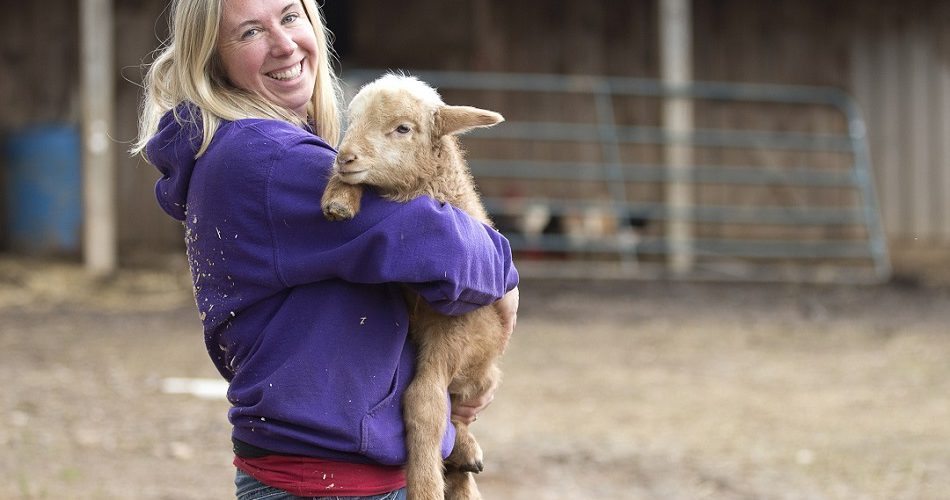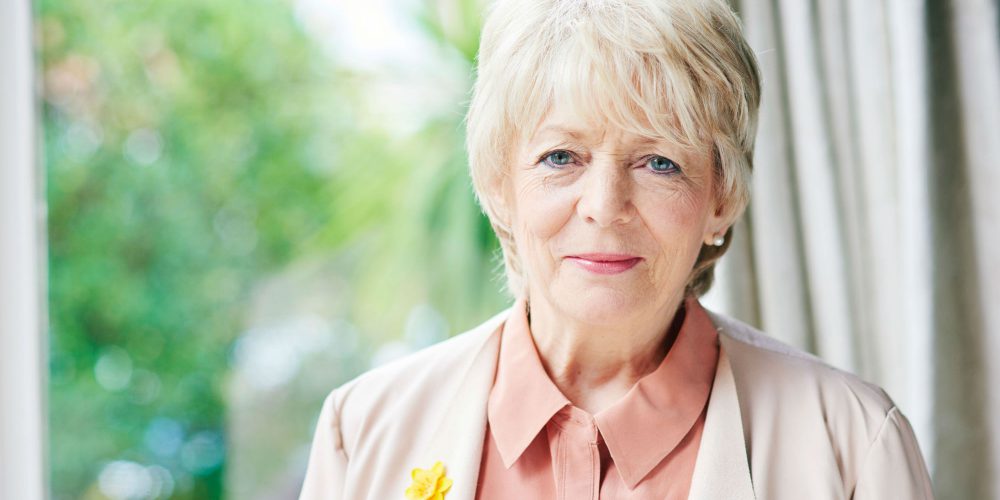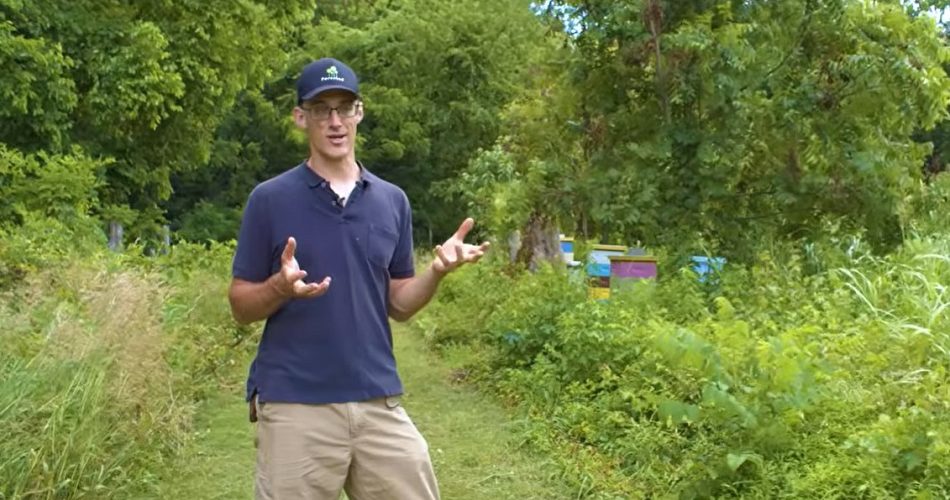Building a flower business is about finding what works for you and embracing that: Lynsey Taulbee, flower farmer
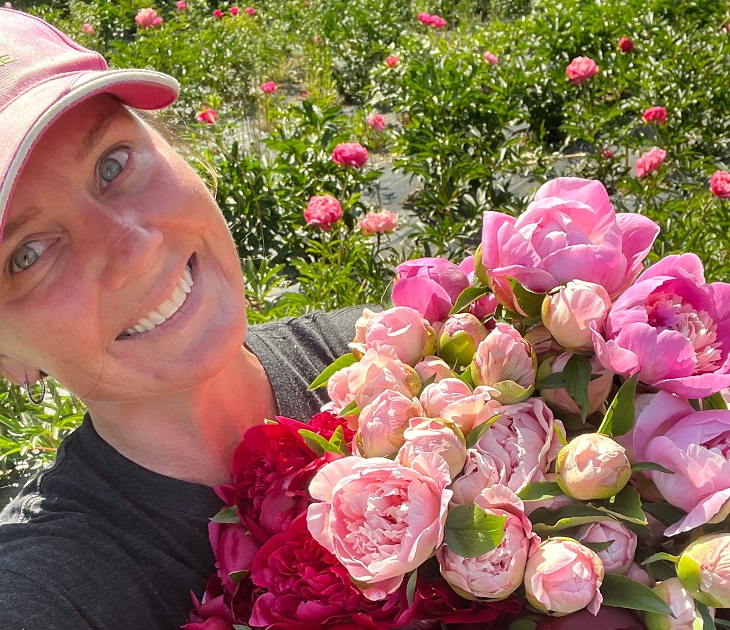
Lynsey Taulbee is a marketing expert and a successful flower farmer from Plymouth, Michigan. She is owner of the Muddy Acres Flower Farm. Lynsey is also an educator, she mentors flower growers, who want to start their own flower business or improve it.
Lynsey specializes in growing peonies now. Today she is speaking about the benefits of specializing in the business of growing cut flowers.
Over the years of working in the flower business, you have accumulated a lot of experience. What is the main advice you’d like to give to those who are going to start their own business in this field?
Lynsey Taulbee: In the world of flower farming, it’s common to start by growing all the flowers.
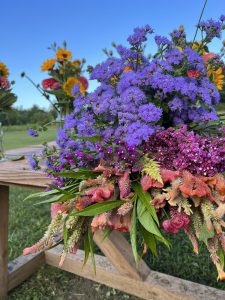
There’s a certain wisdom in this approach, especially in the beginning—you get to experiment, discover what you enjoy growing, find out what thrives in your zone, and learn what your customers love. But as time goes on, trying to grow it all can become overwhelming. That’s where the idea of specializing comes in.
If we look at the farms that have been around for a while, they’ve all found their unique focus or carved out a specific market for themselves. Floret focuses on breeding new cut flowers. Triple Wren, Coseytown and Santa Cruz focus on dahlias. Love n’ Fresh and The Flower Hat are known for their incredible wedding design. Sweet Water Floral goes all in on holiday wreaths. These businesses hone in on what they do best, becoming the go-to experts in their chosen niches.
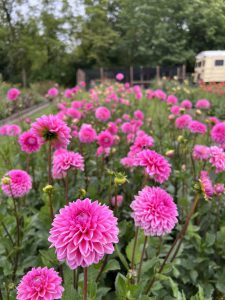
How did you come up with the idea of specialization?
Lynsey: For me, it all started when I dismantled a belief that I needed to offer ALL the flowers for this flower gig to work. This led me to first give up foliage, then annuals, and eventually, even coveted spring staples like tulips, ranunculus, and anemones.
Then I streamlined my focus down to just two flowers: dahlias and peonies. And over the last two years, I phased out dahlias, leaving me with a sole focus on peonies.
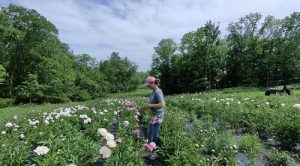
Crazy, right? But as bold as it may seem, there are a lot of benefits to specializing.
What are the benefits of specializing, in your view?
Lynsey: The first benefit of it is streamlined operations. Specializing in a niche allows you to streamline your operations significantly. When you focus on just a few crops, everything becomes more efficient—from planting and harvesting to marketing and sales. Instead of pinching some flowers and not others, pinching some at 12” and others at 9”- you can pinch the entire field at one time. Instead of some plants spaced at 12” and others at 4”, they are all spaced the same. Specializing allows you eliminate the need to juggle the different demands of multiple flowers and streamline your processes.
Undoubtedly, that’s a clear benefit.
Lynsey: Another biggest perk of specializing is the ability to create breaks in your growing season. For example, if you’re a teacher and only have July and August to dedicate to farming, growing annuals might be perfect for you. But if you prefer to have your summers off to spend time with family or simply recharge, focusing on crops like peonies or tulips, which bloom in the spring, could be a game-changer. Specializing allows you to align your farming schedule with your lifestyle.

When you specialize in something and succeed, you can become an expert in your field. That’s also great.
Lynsey: Yes, I call it you’re becoming the go-to expert. When you specialize, you have the opportunity to become known as the go-to expert for that particular flower. Whether it’s peonies, dahlias, or another specialty crop, narrowing your focus allows you to build a reputation and a loyal customer base that seeks you out specifically for what you grow best. This can lead to higher demand, premium pricing, and stronger brand recognition.
And if you specialize in what you like most, you get more pleasure from your work.
Lynsey: Certainly. You get increased satisfaction. Specializing can also reduce the stress that comes with trying to manage a diverse and demanding crop list. By focusing on just one or two types of flowers, you can enjoy the work more, knowing that you’re not spreading yourself too thin. This increased focus often leads to a deeper satisfaction with your work, as you become more skilled and knowledgeable in your chosen niche.
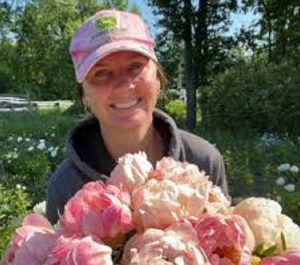
Please, summarize what flower growers should consider if they decide to specialize.
Lynsey: My advice is first think what you love growing. Reflect on which flowers bring you the most joy to grow and which you’re most passionate about. Specializing should align with your interests.
Find out what grows best in your zone? Consider the flowers that thrive in your climate with minimal intervention. Specializing in what naturally grows well can lead to better yields and less stress.
Another important thing is to know what your customers want. Pay attention to what your customers consistently ask for or what sells out quickly. Specializing in high-demand flowers can ensure a steady market for your crops.
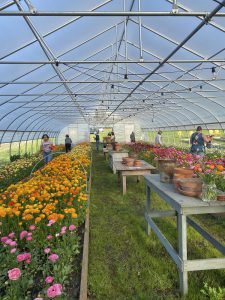
And of course, think what fits your lifestyle. Think about how different growing schedules align with your personal and family life. Specializing can help you create a business that supports your desired lifestyle, not one that takes it over.
Is the thought that less crop means less income right?
Lynsey: I’ve learned that less crops does NOT mean less income!!! You don’t have to grow everything. By focusing on fewer crops, I can grow my business in a way that feels sustainable for me.
Look for gaps in the market and follow them. I noticed there was demand for peony roots, so I shifted my focus and it’s paying off. When you see a gap, lean into it. Have 5 flower stands in town but no u-picks? Consider a u-pick!
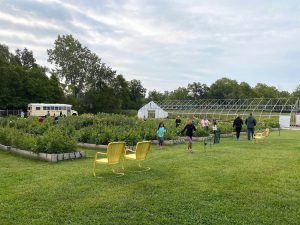
And most importantly, I’ve learned that building a flower business isn’t about keeping up with what everyone else is doing – it’s about finding what works for you and embracing that.
By Gilbert Castro | ENC News


